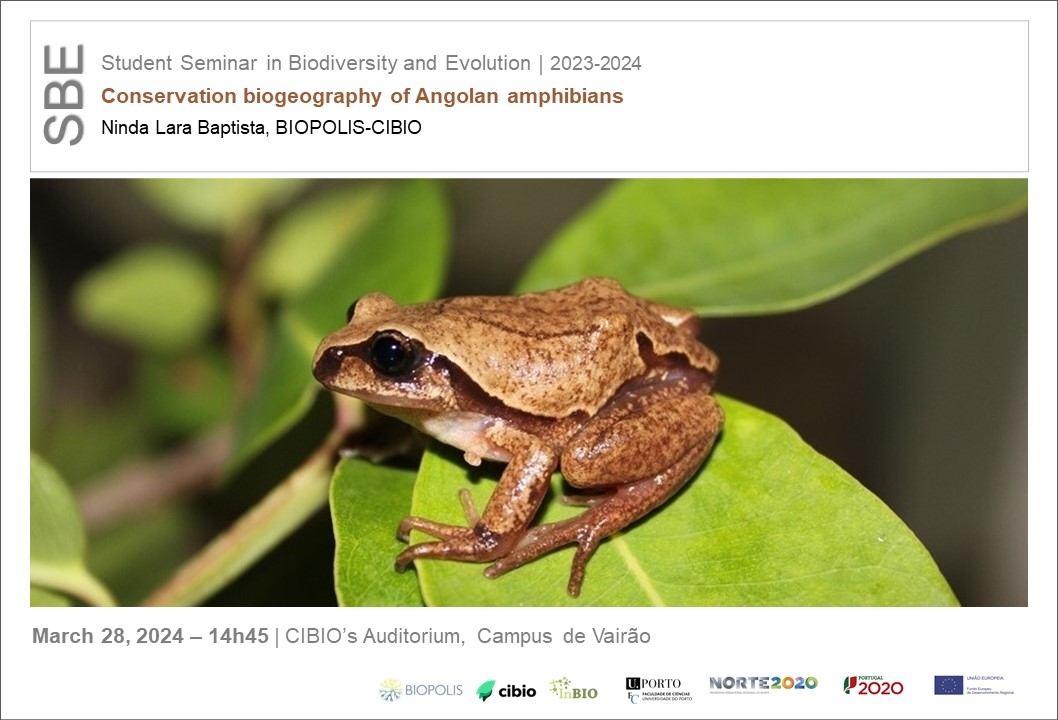Conservation biogeography of Angolan amphibians
28 Mar 2024 - Ninda Lara Baptista, BIOPOLIS, CIBIO-InBIO/UP | 14h45 | CIBIO, Campus de Vairão

STUDENT SEMINAR IN BIODIVERSITY AND EVOLUTION
Africa hosts the largest terrestrial tropical area among all continents, but it is the most poorly surveyed. Its huge area, history of political instability, intense natural resources exploitation, and little research in many countries, pose challenges to understanding its diversity. Angola is a perfect representative of tropical Africa, being wide and diverse, in a transition between the central moist forests and the southern deserts. Many studies addressing ecological hypotheses in Africa lack data from this crucial region, thus filling these gaps is valuable. Angolan biodiversity is poorly studied and amphibians are the least known tetrapod class therein. We used Angolan amphibians as proxys for afrotropical biodiversity to create a genetic reference database, identify cryptic diversity, and map the distribution of species richness. Amphibian samples were collected across all provinces during 14 years (2009–2023). Mitochondrial lineages were delimited based on the 16S rRNA gene. Their distribution was mapped to identify richness and endemism patterns per 1-degree grid cells, biomes and ecoregions. The first comprehensive genetic reference database of Angolan amphibians was produced, with over 1600 sequences, including 133 anuran taxa from 28 genera and 13 families, and 47 endemic and 47 candidate species. Patterns of richness distribution follow a north-south latitudinal gradient decrease, reflecting rainfall and temperature regimes. Northern ecoregions displayed the highest richness. These results greatly increase the previously reported amphibian richness in Angola. New taxa will likely continue to be found as field surveys progress, especially in northern areas. This dataset improves considerably the knowledge about the Angolan transition zone and now enables ecological studies at a continental scale.
I graduated in Environmental Biology and got an MSc Degree in Conservation Biology in the University of Lisbon. I am mostly interested in conservation, biogeography and ecology. My main goal is to work on conservation, especially in Angola, where I am from, and where I have worked on environmental consulting, applied conservation projects in priority habitats, and environmental outreach. In 2015–2018 I undertook research on amphibians and reptiles in Angola, doing field surveys, creating a collection for their study in the country, and publishing scientific papers in the scope of the SASSCAL (Southern African Science Service Center for Climate Change and Adaptive Land Management) Project. I am currently studying the diversification of Angolan amphibians for my PhD at CIBIO/UP.
[Host: José Carlos Brito, Biodiversity of Deserts and Arid Regions - BIODESERTS]